Turn-Mill Machines
Turn/Mill Machines are capable of both rotating-workpiece operations (turning) and rotating-tool operations such milling and cross-drilling. The machine is typically recognizable as a horizontal or vertical lathe, with spindles for milling and drilling simply available at some or all of the tool positions. A part requiring a variety of operations can be machined in one setup, particularly if a subspindle allows the part to be passed from one spindle to another during machining. More recently introduced turn/mill machines depart from the lathe design into something much more like a hybrid machine—combining a lathe’s chucks and spindles with the travels and milling power of a machining center.






ESSENTIAL READING
VIEW ALLHow to Meet Aerospace’s Material Challenges and More at IMTS
Succeeding in aerospace manufacturing requires high-performing processes paired with high-performance machine tools. IMTS can help you find both.
Read MoreHow to Start a Swiss Machining Department From Scratch
When Shamrock Precision needed to cut production time of its bread-and-butter parts in half, it turned to a new type of machine tool and a new CAM system. Here’s how the company succeeded, despite the newness of it all.
Read MoreWhen Organic Growth in Your Machine Shop Isn’t Enough
Princeton Tool wanted to expand its portfolio, increase its West Coast presence, and become a stronger overall supplier. To accomplish all three goals at once, acquiring another machine shop became its best option.
Read MoreA New Milling 101: Milling Forces and Formulas
The forces involved in the milling process can be quantified, thus allowing mathematical tools to predict and control these forces. Formulas for calculating these forces accurately make it possible to optimize the quality of milling operations.
Read MoreUnderstanding Swiss-Type Machining
Once seen as a specialty machine tool, the CNC Swiss-type is increasingly being used in shops that are full of more conventional CNC machines. For the newcomer to Swiss-type machining, here is what the learning curve is like.
Read MoreTurn-Mills 101
Turn-mills are a type of multitasking machine that can shorten cycle times and help facilitate lights-out machining for two common machining types.
Read MoreLatest Turn/Mill News And Updates
Digitalization and Done-In-One Reign Supreme at BIEMH 2024
European manufacturers may have a different balance of markets than their U.S. counterparts, but the practical challenges they must overcome are often similar — as are the solutions.
Read MoreMachine Tool Drawbar Made With Additive Manufacturing Saves DMG MORI 90% Lead Time and 67% CO2 Emission
A new production process for the multimetal drawbar replaces an outsourced plating step with directed energy deposition, performing this DED along with roughing, finishing and grinding on a single machine.
Read MoreSunnen Presents Vertical Honing Systems for Increased Process Control
IMTS 2024: Sunnen presents its SV-3000 series vertical honing machines with Sunnen2 system control and OPC protocol for minimized setup times, automatic cycles and robotic load/unload for mid- to high-production part production.
Read MoreIndex Corp. Turnkey Solutions Provide Flexible Manufacturing Performance
IMTS 2024: Index's C200 FANUC features powerful twin spindles that achieve rapid material removal.
Read MoreIndustry Analysis: Machining Semiconductor Components
With many machine shops anticipating long-term growth in demand from the semiconductor industry, it is worth the time to heed the advice of manufacturers who have already been servicing this end-market for years.
Read MoreCeratizit Introduces End Mill for Titanium, Super Alloys
IMTS 2024: Ceratizit USA features an end mill for titanium and super alloys, upcoming tool catalog and a cutting tools portfolio.
Read MoreFeatured Posts
Controlling Extreme Cutting Conditions in Large-Part Machining
Newly patented technologies for controlling chatter and vibration during milling, turning and boring operations promise to drastically reduce production time and increase machining performance.
Read MoreMultitasking Machines Cut Days From Shop’s Setups
Adopting WFL Millturn machines enabled BWXT to condense operations and setups while also providing a simple way to simulate and secure processes.
Read MoreBuilding Machines and Apprenticeships In-House: 5-Axis Live
Universal machines were the main draw of Grob’s 5-Axis Live — though the company’s apprenticeship and support proved equally impressive.
WatchTTI Brings Specialty Gear Production In-House with Multiaxis Machining
By investing in a 3+2-axis machine and utilizing simulation software for diagnostic checks, Techtronic Industries turned a four- to ten-week lead time into a one- to two-week lead time.
Read MoreInverting Turning and Five-Axis Milling at Famar
Automation is only the tip of the iceberg for Famar, which also provides multitasking options for its vertical lathes and horizontal five-axis machine tools.
Read More5 Tips for Running a Profitable Aerospace Shop
Aerospace machining is a demanding and competitive sector of manufacturing, but this shop demonstrates five ways to find aerospace success.
Read MoreFAQ: Turn/Mill
What is a multitasking machine?
Multitasking machines are often built on a turning center platform. These machines use rotary tools to combine several cutting processes such as turning, milling, drilling, tapping, grooving, threading and deep-hole boring on one machine.
Source: Buying a Lathe: Slant-Beds and Multitasking Configurations
What is a turn/mill machine?
A mill/turn machine, or turn/mill machine, is a CNC machine that can perform turning and milling operations.
Why use a multitasking machine?
Why do these machines continue to rise in popularity? It’s simple. They offer the opportunity for a part to be machined completely on one piece of equipment.
Traditionally, parts that might start on a lathe for turning work, for example, could then have to be taken to a mill to create prismatic features. That means, two machines must be set up and tended to. Parts with turning work complete must be transported to the mill. Those parts might have to be staged as work in process (WIP) waiting for the mill to become available (and scheduling can be tricky to efficiently coordinate machine availability). An accumulating number of setups and part repositioning can lead to error stacking. Multiple machines take up more floor space and consume more energy.
In cases in which a multitasking machine can produce parts complete, these issues go away.
Source: Multitasking Machining Equipment: Now the New Normal
Turn/Mill Supplier Categories
- Graphite Milling
- Planer, Gantry & Bridge Type Milling
- Universal Milling Machines
- End Turning Machines
- Horizontal CNC Turning
- CNC Turn/Mill Machines
- Bed-Type Milling
- Nano & Micro Machining
- Lathes, Cycle-Controlled (Semi-CNC or "Teachable")
- Cut-off Lathes
- Twin-Spindle/Twin-Turret Turning
- Vertical CNC Turning Centers
- Knee & Column Milling, Non-ATC
- Ultrasonic
- Manual Lathes
- Inverted Vertical CNC Turning













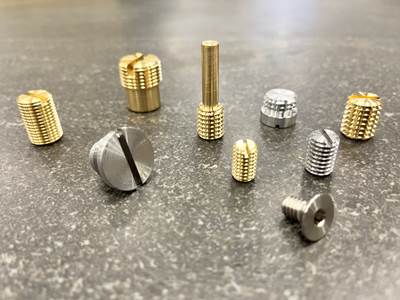
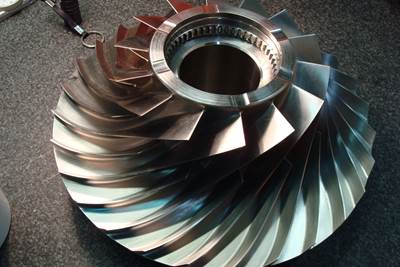
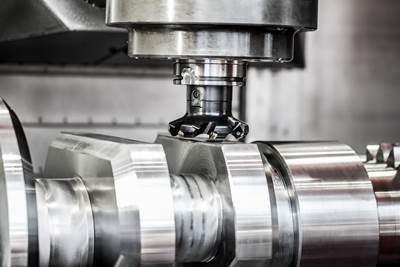
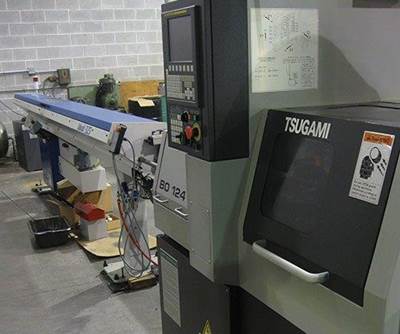
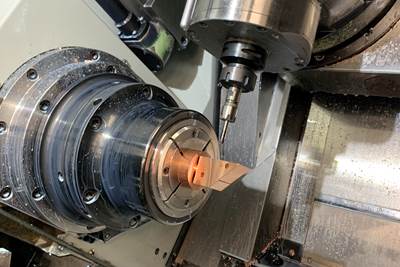
















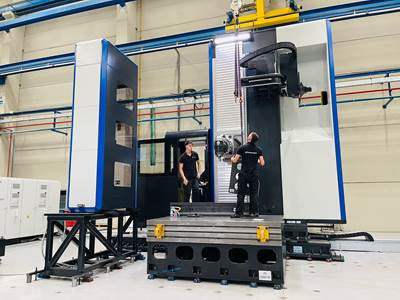
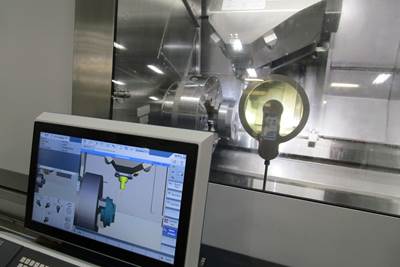
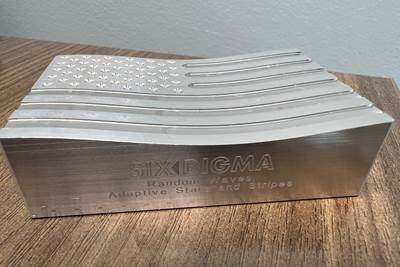
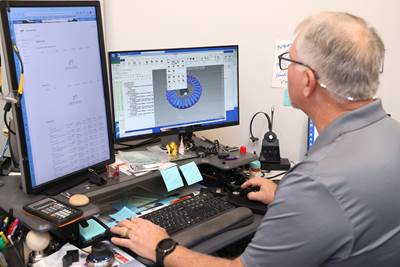

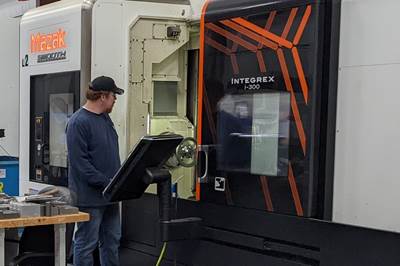






.jpg;maxWidth=300;quality=90)

